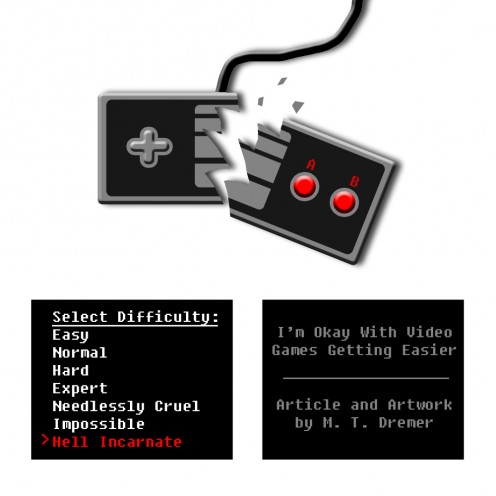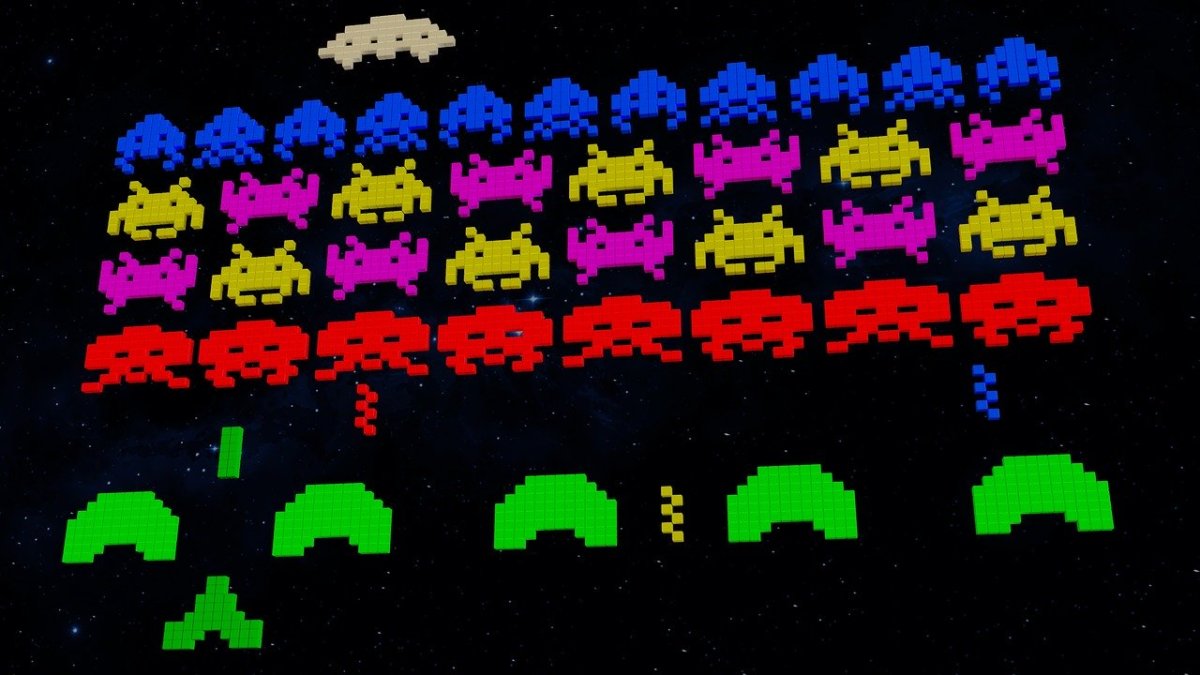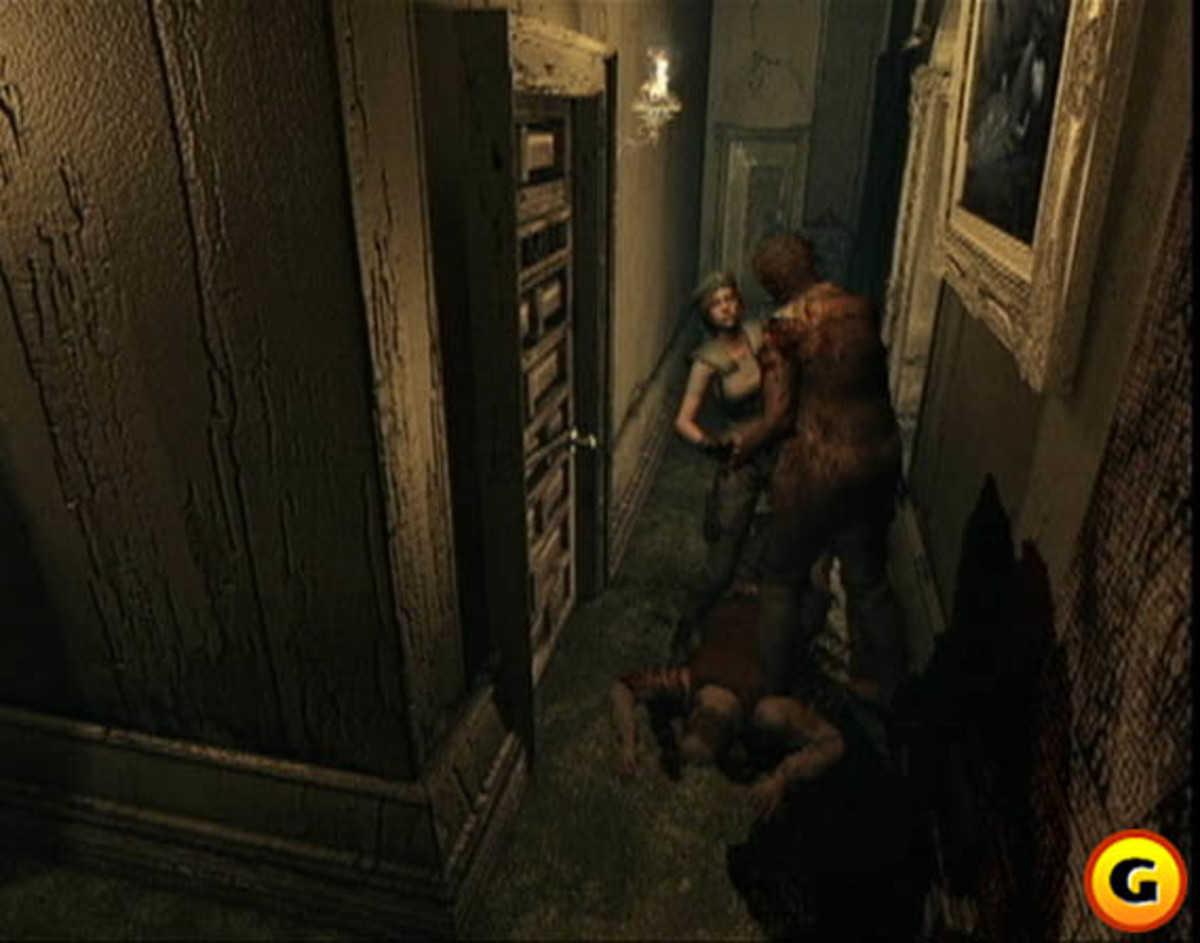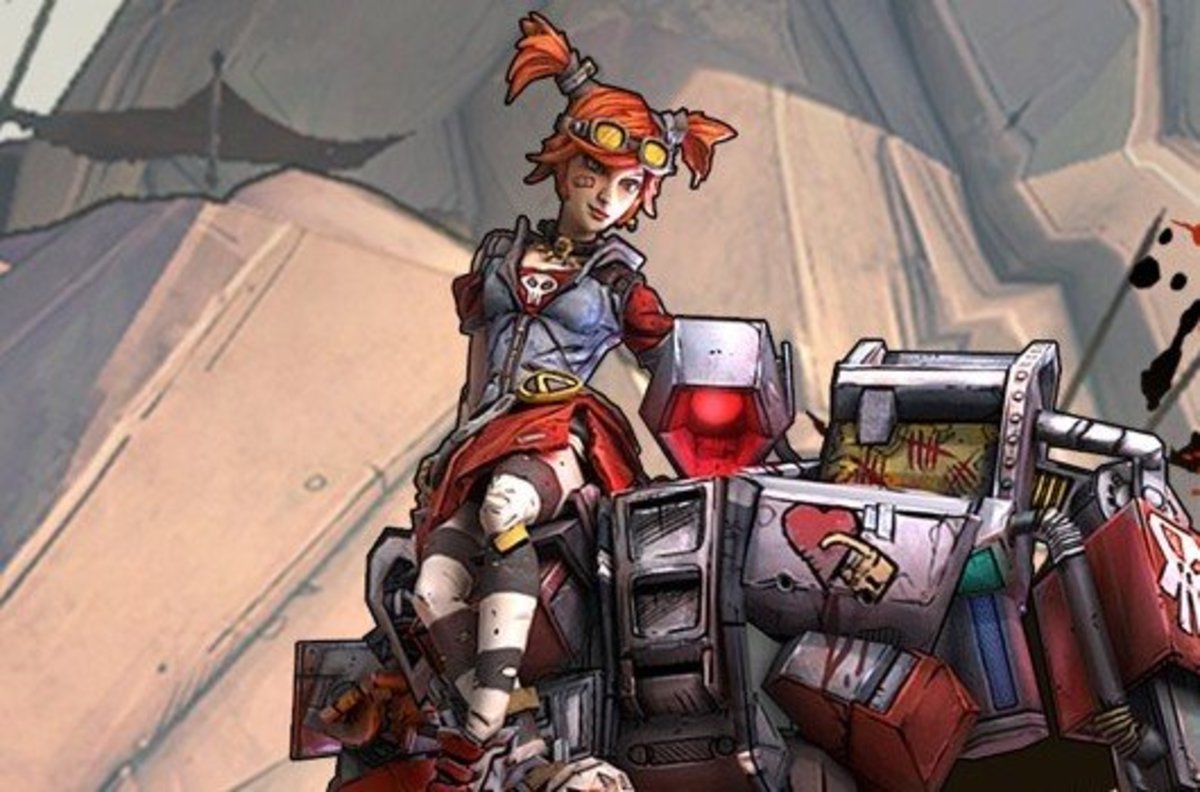Why I'm Okay With Video Games Getting Easier

I’ve read a few opinions from gamers that addresses the declining difficulty level in video games during the modern age. Usually the position taken is that games today tend to baby the player from level one to the end, with so many tutorials and objective markers that the games offer no challenge anymore. While I won’t deny that this is happening, I have decided to counter these concerns and suggest that the lowered difficulty level is actually a good thing. And there are several reasons why I believe this.
I want what I paid for.
Imagine going to the movies and halfway through the storyline, the movie cuts out and you’re not allowed to finish it until you complete a written exam. Or, maybe a movie that started in 2D suddenly becomes 3D, and then gets converted into a foreign language. Keeping up is going to be tough and ultimately you would probably want your money back. Either way, the thing that you just paid for is too challenging to complete and even though your bill included the whole thing, it doesn’t mean you get to see the ending. In the past, when games were less story driven, it didn’t really matter because when you got to the end all it said was ‘Game Over’. Who wants to get to that ending anyway? But today, game developers put a lot of time and effort into every level, character, and scenario. Why would they willingly exclude people from experiencing all of their hard work? Would a director be content if he/she knew most audience members weren’t seeing the ending of their movie?
I like a good story.
As I mentioned above, games of the past weren’t terribly deep where story is concerned. Sure, there were RPGs with a novel’s worth of text. But, for the most part, we were coming off of the arcade scene and that meant that games were quick, challenging, and pretty, but no one stood at a kiosk in an arcade to learn why Donkey Kong stole Mario’s girlfriend. Granted, not everybody plays video games for the story, and I’ve played plenty that have been light on any sort of narrative and still enjoyed the heck out of them. But the lowered difficulty level means that developers have the option to develop those more complex stories. Knowing that your player will be able to save their game and restart means you know they will reach later levels. This allows the developer to plan the story in an arc, the same way that a movie or a book does. And while video games don’t need to be the frontrunner for storytelling, they do provide a unique platform for users to experience stories first hand. Without the lowered difficulty level, games wouldn’t have this new avenue of storytelling.
I like innovation.
Branching off of what I mentioned above, when a developer knows the player will reach later levels, it gives more incentive to personally ratchet up level design, boss battles and puzzles. Whereas in the 2D era, difficulty usually came in the form of more/harder enemies and less life for the player. It was less about what was a natural progression in game design, and more about bumping up numbers (which generally resulted in sadistic and cruel scenarios for the player). I truly believe that some of those games from the NES/SNES era were unbeatable without a game genie. But if you’re developing a game that you want a player to finish, then you need to discover ways to make the later levels fun and challenging, but still surmountable. The 3D Zelda games are a good example of doing this right, as the later dungeons use a combination of old items/new and challenging puzzles to keep the gamer on his toes. It challenges us with what we have learned, not how twitchy our fingers are. I’ll admit that part of that is genre preference. But, in my opinion, the best games are the ones that make you adapt your strategy for winning, as opposed to doing the same thing over and over again, just faster.

I don’t like being frustrated.
I suspect that a lot of gamers from the 90’s, now that we’re in the working world, have more than enough daily frustrations to worry about. So, after a hard day of work, why would I want to come home and raise my blood pressure? I understand that there is a feeling of reward after completing something particularly challenging, but there is a line between enjoyable difficulty and needless slaughter. For example, think back to every last boss in a fighting game. They always abandon the fighting mechanics of the game in favor of cheap moves just to make you angry (The Dead or Alive series was notorious for this). And, of course, the elegant fighting style you’ve played with, up until then, goes out the window in favor of spamming low kick over and over again. I want to enjoy what I’m doing, not break my controller. I suppose it’s different when you’re a kid and you don’t have as many life frustrations, but as an adult, I really appreciate games that let me save often or store a life-restoring fairy in a bottle.
The argument for difficult video games.
I noticed that the difficulty of video games became an issue upon the release of Dark Souls. It’s an action RPG that will kill you more often than it will offer you any sort of hint as to where to go or what to do. I read the review of it, which was favorable, and had it recommended to me by a friend. However, both the review, and my friend only spoke of the game’s difficulty. While they were praising it, all they had to talk about was how frustrating the bosses were, or how dark and confusing the dungeons were. To this day I still haven’t played Dark Souls, and the reason is because I have no desire to willingly subject myself to that frustration. However, despite my reservations, those who play it were still speaking of it favorably. So clearly the game did something right.
Perhaps there is a niche of gamers who want a game that offers no help and instead makes you learn with the ‘trial by fire’ method. There is definitely a sense of satisfaction when figuring out a puzzle or boss strategy without the need to use a strategy guide, hint, or cheat code. And, it’s also different when the entire game has that difficulty, as opposed to an ‘easy mode’ where anyone can do what you did with less trouble. So, I get that, but as a whole, I think that for games to continue to be viable as a major industry, the majority need to be on the easier side.

Conclusion
It’s hard to tell if the reasons I mentioned are responsible for the decline in difficulty, or if it is a result of younger gamers unable to take on a higher challenge. Game developers frequently listen to feedback from their fans, and if many complained that their previous game was too hard, they will take that into account for their next project. So, whatever the reason is, I do feel that gamers, as a whole, have benefited from it.
Think of a game like Angry Birds; it’s a simple concept that gets progressively harder as you go. However it remains largely the same, in terms of game design, throughout its levels. It’s quick, challenging, and simple enough to fit on your mobile phone. Now think of a game like Skyrim; a sweeping epic fantasy that gives your customized character the chance to freely explore a three dimensional fantasy world filled with deep characters and story-lines. I’m not saying that Skyrim is inherently better than Angry Birds, just because it’s bigger. I’m saying that Angry Birds adheres to the formula of older video games where the developer didn’t necessarily make the game with the intent that people will finish it. It’s meant to be played in short spurts and offer up a fun challenge. I would go as far to say that the majority of people who download Angry Birds, probably don’t complete it to the end. Where as a game like Skyrim, or the Legend of Zelda: Skyward Sword, are the kind of games that the developer wants you to complete. A lot of work went into the later levels and if the game fails to encourage you to reach those later levels, then they must have done something wrong. If easier games hadn’t opened up the industry to a broader audience and stepped away from the ‘hardcore’ niche of gamers, we might never have had projects with such scale and beauty.










